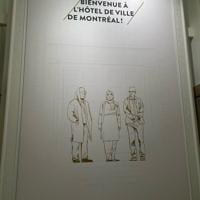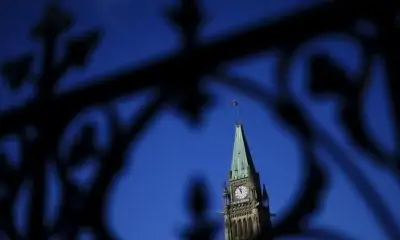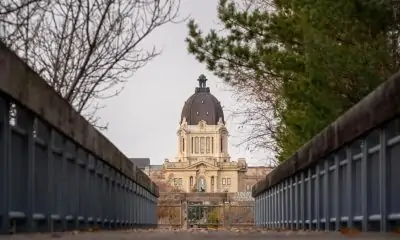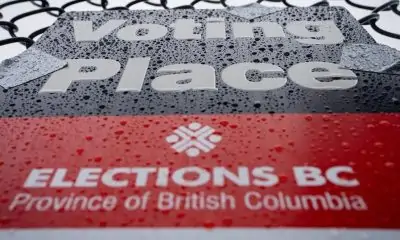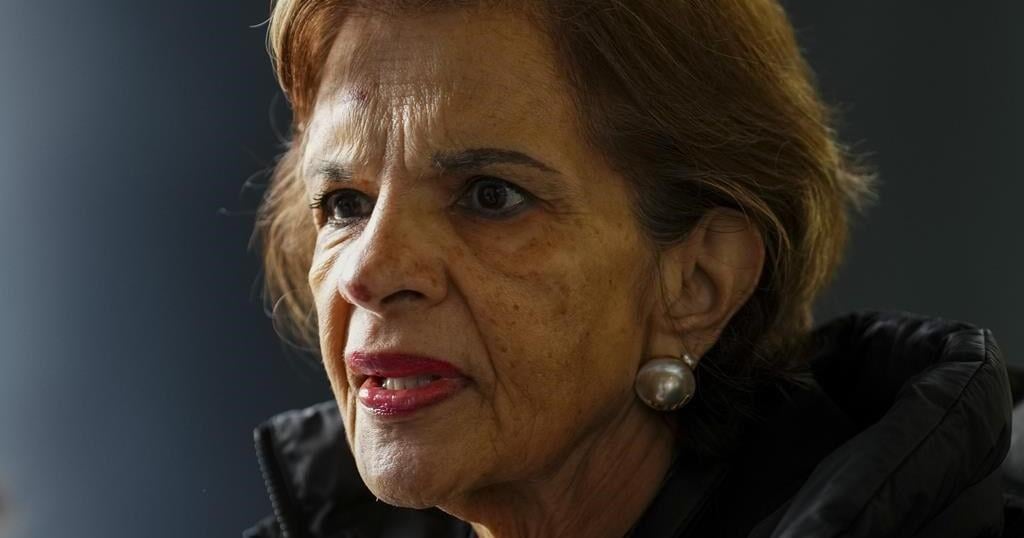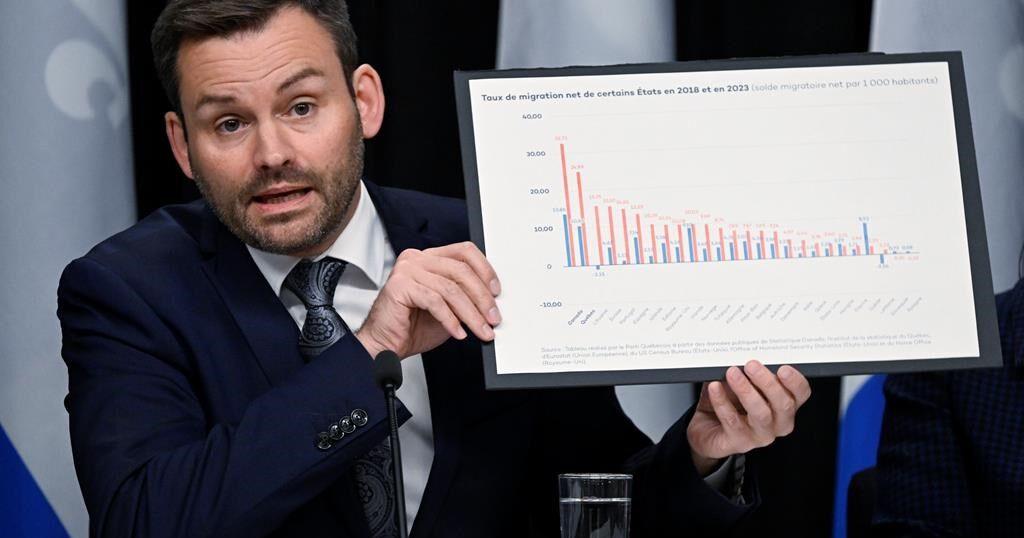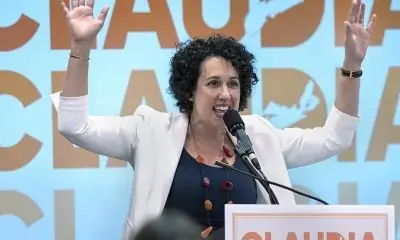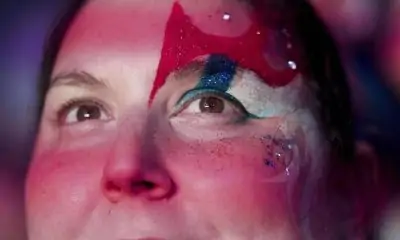Montreal’s mayor says a welcome sign depicting a woman wearing a veil that adorns a lobby at city hall will be taken down in the name of secularism.
Valérie Plante said during a talk show that aired Sunday night that the image of the woman wearing a hijab will be removed because of the “discomfort” it causes but also because institutions must strive to be secular.
The welcome sign, as well as a photo in a public library of a young girl wearing a headscarf, has been criticized in the media, and the Parti Québécois has said the two images show that religion has begun invading the public sphere.
Plante told Radio-Canada talk show “Tout le monde en parle” that she understands the discomfort with the welcome sign, adding that it’s possible to promote diversity as well as secularism.
The subject of religion in the public sphere has resurfaced in recent weeks after 11 teachers were suspended at a Montreal public elementary school over allegations of toxicity and creeping religious instruction.
The mayor’s office said today it had nothing further to add about Plante’s appearance on the talk show, which came just days after she announced she wouldn’t seek a third term as mayor in next year’s elections.
This report by The Canadian Press was first published Oct. 28, 2024.



